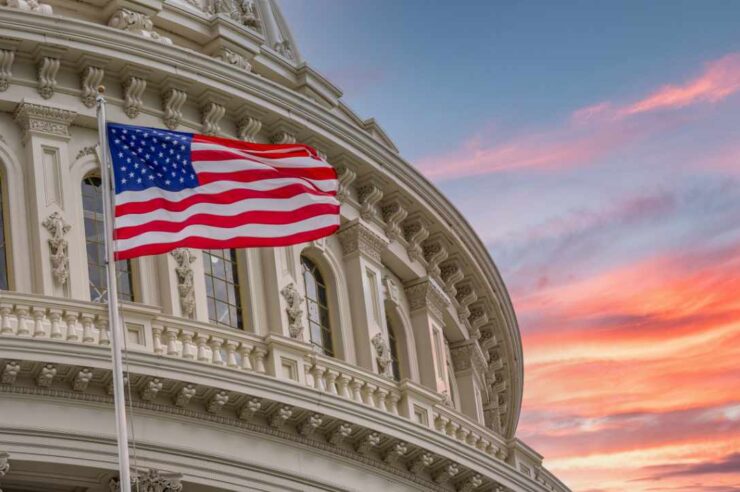U.S. Senator Cynthia Lummis believes that the FTX bankruptcy wouldn’t have happened under the Lummis-Gillibrand crypto bill. She stressed: “It’s clearer now than ever before that we need comprehensive regulation in the digital asset space.”
Senator Lummis Explains How Her Crypto Bill Would Prevent the FTX Catastrophe
U.S. Senator Cynthia Lummis (R-WY) explained in a series of tweets Monday why the collapsed cryptocurrency exchange FTX wouldn’t have gone bankrupt had Congress passed her crypto bill. The cryptocurrency trading platform filed for bankruptcy last week.
The senator from Wyoming has been a supporter of bitcoin for quite some time. She personally owns BTC and believes that bitcoin is something that the Federal Reserve should hold on its balance sheet. She has said repeatedly that the cryptocurrency is an excellent store of value.
She tweeted Monday:
The FTX bankruptcy wouldn’t happen under the Lummis-Gillibrand bill.
Lummis and Senator Kirsten Gillibrand (D-NY) introduced the Responsible Financial Innovation Act in June. The two lawmakers described the bill as “landmark bipartisan legislation that will create a complete regulatory framework for digital assets that encourages responsible financial innovation, flexibility, transparency and robust consumer protections while integrating digital assets into existing law.”
The senator from Wyoming explained in different tweets that the bill addresses “Clear property rights (not your keys, not your coins!),” provides “Strong protection & separation of customer assets on an exchange,” and puts “Tight limits on digital asset leverage & lending.” In addition, it provides “Bankruptcy protection for all customers” and ensures “Transparency into affiliates and connected organizations of an exchange.”
Lummis also told Cowboy State Daily that the collapse of FTX is not something that could have happened in Wyoming. The senator detailed: “Since 2019, we’ve known that affiliate transactions with digital assets are dangerous. And that’s why it is illegal in Wyoming … In Wyoming, there are strict limits on affiliate transactions such as occurred between FTX and its sister organization called Alameda.”
She described:
The Lummis-Gillibrand bill, for example, requires that an exchange not use customer assets for proprietary trading and maintain 100% of customer assets for withdrawal at all times.
Furthermore, she said the bill “requires use of an independent bank or trust company as custodian, similar to what would happen now with securities under the SEC and the Commodity Futures Trading Commission.”
Senator Lummis told CNBC Tuesday: “We need to make sure we’re balancing innovation with consumer protections … Buyer beware, these foreign-based companies are operating under different country’s laws because they’re more advantageous to those companies.”
Following the bankruptcy filing of FTX, Lummis tweeted:
It’s clearer now than ever before that we need comprehensive regulation in the digital asset space.
She emphasized: “Senator Gillibrand and I stand ready with the solution. It’s time for Congress to pass the Responsible Financial Innovation Act to safeguard Americans’ hard-earned money.”
Other crypto bills that were introduced in Congress this year are the “Digital Commodities Consumer Protection Act of 2022” and the “Digital Commodity Exchange Act of 2022.”
What do you think about the comments by Senator Cynthia Lummis? Let us know in the comments section below.
Image Credits: Shutterstock, Pixabay, Wiki Commons
Disclaimer: This article is for informational purposes only. It is not a direct offer or solicitation of an offer to buy or sell, or a recommendation or endorsement of any products, services, or companies. Bitcoin.com does not provide investment, tax, legal, or accounting advice. Neither the company nor the author is responsible, directly or indirectly, for any damage or loss caused or alleged to be caused by or in connection with the use of or reliance on any content, goods or services mentioned in this article.
Read disclaimer




